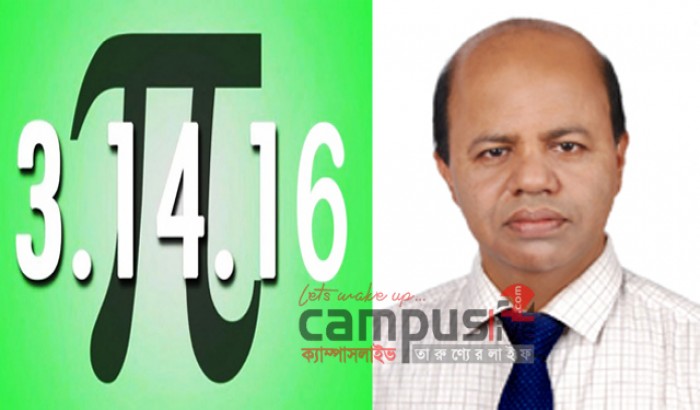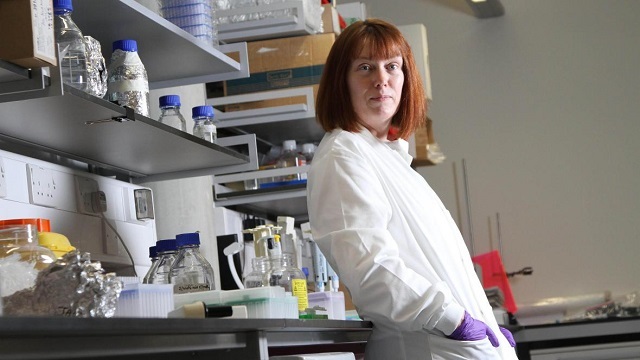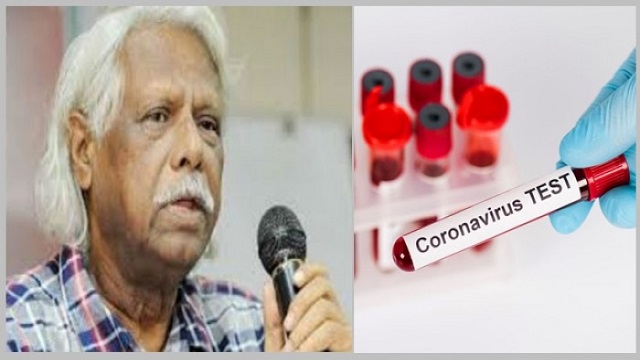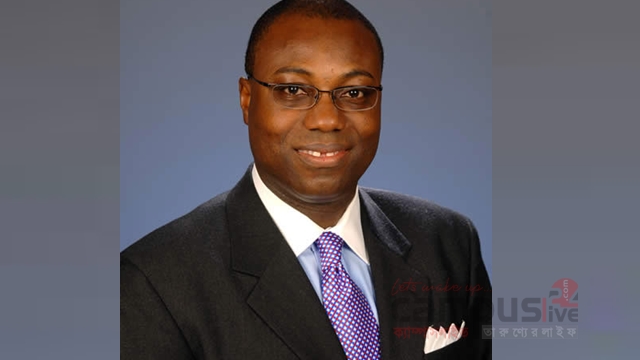International Day of Mathematics (IDM)
Published:
2020-03-15 02:09:04 BdST
Update:
2024-04-26 04:11:30 BdST

Dr. Md. Shahidul Islam: One of the most nice and mysterious number of the world is Pi (π), known for almost 4000 years. Welsh Mathematician William Jones in 1706 first used the Greek letter Pi. The symbol was later popularized in 1737 by Swiss Mathematician and Physicist Leonhard Euler. Since then, Pi has been widely used in diverse fields by engineers, physicists, architects, designers, etc.
Founded in 1988 by Physicist Larry Shaw, March 14 was selected because the numerical date 3.14 represents the first three digits of Pi, and it also happens to be Albert Einstein’s birthday (1879). The first Pi Day celebration took place at (Shaw’s place of work) San Francisco-based science museum in 2009. However, it became an official national holiday when the U.S. House of Representatives passed legislation. Mathematicians, Scientists and teachers hope the holiday will help increase interest in Mathematics and Science worldwide.
The most accurate calculation of Pi before computers was done in 1945, by D.F. Ferguson. He calculated up to 620 digits. In 2002, Super Computer found 1.24 trillion digits by spending 400 hours.
40th General Conference of UNESCO on November 26, 2019 approved the Proclamation of March 14 as the International Day of Mathematics (IDM). The international official launch will take place for the first time in Paris at the UNESCO Headquarters, on March 13, 2020.
International Mathematics Union (IMU), an international non-governmental and non-profit scientific organization, with the purpose of promoting international cooperation in Mathematics, decided the theme of the first IDM 2020 “Mathematics is Everywhere”.
The major goals of the IDM, with expected benefits for students, teachers, women and girls and the society is to improve understanding among the general public and decision makers, the importance of Mathematics in education.
“Mathematics makes our lives easier because there is Mathematics in everything.” — Prof. Adewale Solarin, President of African Mathematical Union.
Education is the most powerful weapon which can be used to change the world (Nelson Mandela) and Mathematics is an essential part of it.
GOALS OF THE IDM
The IDM is the opportunity to explain and celebrate the essential role that Mathematics and Mathematics education play in breakthroughs in science and technology, improving the quality of life, empowering women and girls, and contributing to the achievement of the Sustainable Development Goals of the 2030 Agenda (SDG1-17) of the United Nations.
Improve understanding among the general public, and decision makers the importance of Mathematics as a tool for developments (SDG9);
Contribute to capacity building in Mathematical and Scientific education, with special focus on girls and children from developing countries (SDG4);
Emphasize the importance of basic research in Mathematical Sciences as the seed to breakthroughs in technology and the management of society (SDG8);
Highlight the role of Mathematics in organization of modern society, including Economics, Financial, Health and Transport systems, Telecommunications in the quest for human well-being, etc. (SDG3);
Raise awareness of role of Mathematics in fighting disasters, epidemics, emerging diseases (SDG11);
Highlight the role of Mathematics in moving to a circular economy of sustainability compatible with preservation of Biodiversity (SDG14 and 15);
Increase international networking and collaborations in public awareness of Mathematics;
Mathematics is everywhere in science and technology. A few examples:
- Medical imaging devices like CT scan, MRI builds images of numerical data through Mathematical algorithms;
- The decoding of the human genome is a triumph of Mathematics, Statistics and Computer Science;
- Mathematics gave us the first photo of black hole and the solar system;
- Cryptography for secure communication relies on Number Theory and Group Theory;
- Mathematics is behind the software of our smart phones;
- Artificial Intelligence and machine learning are now transforming the world.
Mathematics is everywhere in the organization of the civilization. A few examples:
- Mathematics is used to optimize transport, communication network and managing of Health, Economics and Social systems;
- Mathematics helps understanding and controlling the spread of epidemics;
- Statistics and Optimization are used in efficient planning;
- Mathematics helps designing electoral system that better represent the people’s will;
- Mathematics helps understanding the risks of natural disasters (floods, earthquakes, hurricanes) and preparing in advance;
- Mathematics is helpful in games strategy.
Mathematics is essential to meet the UN Sustainable Development Goals. A few examples:
- Mathematics is used to model the global changes and their consequences on biodiversity;
- Mathematics education empowers girls and women to a better future;
- Mathematics is useful in budgeting;
- Mathematics makes pension system sustainable;
- Precise weather forecasting comes from an atmospheric models and more powerful algorithms;
- Do you want to visit Mars one day? Without Mathematics this will never be possible.
Writer: Dr. Md. Shahidul Islam, Professor, Dept. of Mathematics, Dhaka University.
Convener- IDM celebration Committee 2020
Vice President- Bangladesh Mathematical Society
Dhaka 14 March (campuslive24.com)//tr
Topic:



_19_(1)-2019-06-09-22-45-30.jpg)


Share Your Valuable Comments: